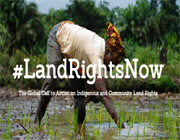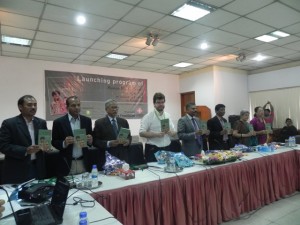
Human rights violations against indigenous peoples, including reported cases of violence, land grabbing and dispossession, intensified alarmingly in 2012, says a Kapaeeng Foundation report. In 2012, 16 people including 7 women were reported to be killed and 23 were either arrested or detained throughout the year whereas around 150 were tortured or intimidated, and around 300 indigenous houses were demolished. At least 725 families have faced threat to eviction in connection to land grabbing. A total of 9 communal attacks were made on indigenous communities across the country. It is reported that Bengali settlers committed most communal attacks in the CHT where security forces played a role either passively or collaboratively. No perpetrator of the said communal attacks, except Ramu attack, was arrested by the administration.
In 2012, a total of 75 indigenous women and children across the country were subject to violence. Of them, 17 indigenous women and children were raped while 7 indigenous women were killed. 30 of the victims, out of 75, were children under the age of 16. Cases were filed for 32 incidents related to violence against indigenous women and children, out of 50 incidents committed in 2012. The police arrested perpetrators of 17 cases, out of 32 cases. But no one was given exemplary punishment so far.
The 183-page report, based on incidents of 2012 and on the overall human rights situation of the indigenous peoples in Bangladesh, was launched by Kapaeeng Foundation, a human rights organisation in Bangladesh, with the support of Oxfam, at Cirdap Auditorium in Dhaka on 21 January 2013. Presided over by Mr. Rabindranath Soren, chairperson of the Kapaeeng Foundation, the programme was attended by Prof. Dr. Mizanur Rahman, chairman of National Human Rights Commission, as chief guest.
In this launching programme, Professor Dr. Mizanur Rahman, said that recognizing indigenous peoples’ right is not a charity; it is a state accountability as per international human rights laws. He also said that the tenure of present government is almost coming to an end, but the government has been giving word for ensuring the implementation of CHT Accord as well as indigenous peoples’ rights for long time. He questioned to government – How many times people will hear that promise! He demanded for visible and concrete implementation of CHT Accord.
He also added, human right violations against indigenous peoples have alarmingly been increasing day by day in Bangladesh. So the lives of the indigenous peoples are shrinking gradually. Although the citizen of Bangladesh are paying tax to the law enforcement forces of Bangladesh to run a state properly with law and regulation, in most of the cases police assistance was sluggish or nonexistent and the perpetrators of violence were in positions of power over the indigenous victims. Who will take responsibility of government’s failure? There is lack of access to justice for indigenous peoples in Bangladesh. In fact there is no single example that perpetrators were prosecuted through the formal justice system till date. He was afraid enough that public will lose confidence on the upper judiciary if it continues. He also informed that NHRC rejected CID report on Kalpana Chakma’s abduction because the accused criminals were not interviewed in the report.
Dr. Rahman also stated that indigenous Tripura children were trapped by fundamentalists. They were admitted in Islamic Madrassa in the lure of missionary education. The students already converted to Islam forcibly. Two indigenous students among other students were rescued with the support of NHRC. The police rescued two indigenous children after receiving an allegation that the children were converted (to Islam) by force with the support of NHRC.
Mr. Rahman criticized about the overgrowth of population issue by government initiatives. He said abnormally population growth and displacement during the period of 1979-1997 patronized the “Bengalis” living in the plain land to be settled in the CHT. It was a wrong decision which obstructing to governments system. He asked to government – why government is not rectifying the wrong decision took in earlier?
Eminent human right activist and chairperson of Ain O Salish Kendra Dr. Hameeda Hossain said, the 15th Amendment to the constitution undermined the human rights and fundamental freedoms of indigenous peoples. No doubt, Bangladesh will be a strong country adapting the diversity of existing ethnicity across the country. She alleged Women and Children are often face sexual violence in CHT as general people believe that ethnic minority peoples are powerless. Recently indigenous peoples have been facing threat to eviction in connection to land, and many business companies occupied thousand areas of lands recorded and owned by indigenous peoples and permanent Bengali residents in CHT.
Ms. Nirupa Dewan, member of NHRC said that the root causes of human rights violation against indigenous peoples is state’s behavior with them just like a stepmother, and complexity of ethnic identity. She hoped that government would provide constitutional recognition to the indigenous peoples as per international human right instruments ratified by the Government of Bangladesh.
Mr. Sanjeeb Drong, general secretary of Bangladesh Indigenous Peoples Forum said usually Government refuses to accept any human rights report intentionally. He urged the government of Bangladesh to come out from this refusing culture for human right report, rather to accept it positively for reducing human rights violation.
Mr. Gareth Price Jones, Country Director of Oxfam GB said that protecting human rights is a challenging job especially human right issue for indigenous peoples. He encouraged to everyone to keep hopes up and high from own position. This human report can be used as an informative tool towards ensuring human rights for indigenous peoples. In fact it would help to government to initiate further positive action.
Dr. Dalem Chandra Barman, editor of human right report 2012 of Kapaeeng Foundation; Mangal Kumar Chakma, Advisor, Kapaeeng Foundation; Fabrizi Sinesi from European Commission; Melina Nathan from UNDP; Binota Moy Dhamai, executive member of AIPP; Namita Chakma woman activist; Joakim Khalko, Kamrun Nahar from Nari Pokkho, Eminent journalist Saleem Samad; Mahmudul Suman, associate professor of Jahangirnagar University spoke in the launching programme.
Dr. Dalem Chandra Barman and Mr. Mong Sing Neo presented the orientation of human right report 2012 while Saikat Biswas, programme officer of Oxfam delivered welcome speech in the programme. More than two Hundreds of indigenous activists and civil society members were present in the launching programme.
Executive Summary-HR Report 2012-Eng
Executive Summary-HR Report 2012-Beng



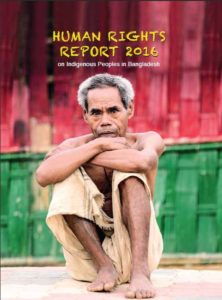
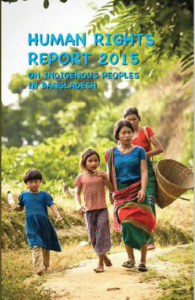
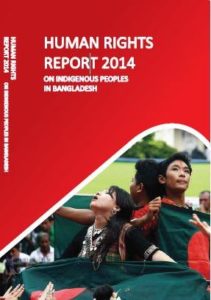
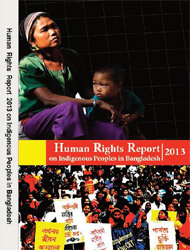
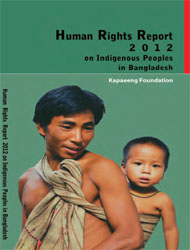
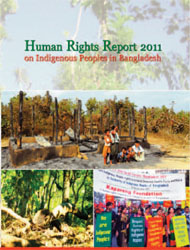
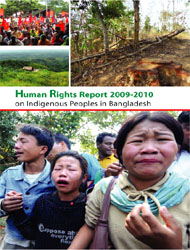

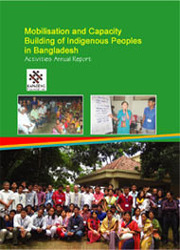



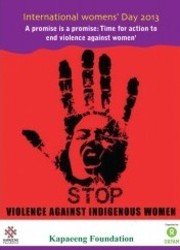
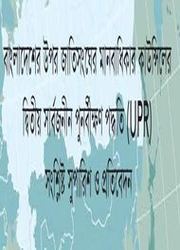
 January 22nd, 2013
January 22nd, 2013  KapaeengUser
KapaeengUser  Posted in
Posted in 